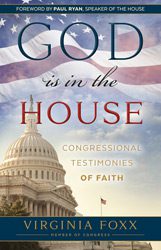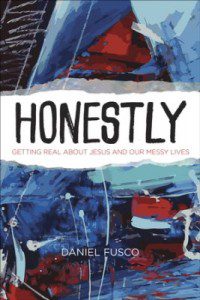 By Padma Kuppa, columnist at the Patheos Hindu Channel
By Padma Kuppa, columnist at the Patheos Hindu Channel
As a Hindu lay person, I am probably an unlikely candidate to jump at the chance to read about Rob Bell in James Wellman’s book about him and “a New American Christianity.” But I have been exposed to Christian thought and writing for decades, have been an interfaith activist for a number of years, and have a growing interest specifically in Hindu-Christian dialogue. Knowing more about how American Christianity is developing is essential to this path. In particular, I wanted to understand more about Rob Bell: he was a mega-church pastor from Michigan, an evangelical, and doesn’t believe that I or other non-Christians are going to hell. He’s even asked, “Gandhi’s in hell? He is? And someone knows this for sure?” Wellman’s book on Bell is shaped by who or what he is: a mysterious, subversive, charismatic, artistic, radical, heretic. But in the end, as Wellman says that Bell wants to “create a really beautiful Jesus.” This reminded me of Gandhi, who said, “I would suggest that all of you Christians live more like Jesus Christ.”
 I learned that there’s a lot to like about Rob Bell.
I learned that there’s a lot to like about Rob Bell.
The one semester I studied at Ecumenical Theological Seminary, I asked a classmate during group presentations on salvation and grace, “Isn’t God’s grace for everyone?” (In her group’s presentation, grace was only for believers.) Bell answers my question, with his proclamation: “For those who have done all the wrong things and who may not even believe in grace, this grace is here for them.”
Bell’s appeal to social justice is much like mine. I was excited to read that he wrote on the back of his book, Jesus Wants to Save Christians, “Did you know a church just completed a 20 million dollar building improvement at the same time it was reported that 20% of Grand Rapids lives in poverty?”
Bell’s theology affirms science, seeing the “universe as an expression of God’s creative act in Christ.”
His theology is helping people integrate faith into a world where encounters with cultural and religious diversity are the norm.
I also found a profound Hindu-ness in Rob Bell:
Hindus do not see the sacred and profane as separate – neither does Bell. All things are sacred – everyone is a spark of the Divine. While we have paap, or sin, it is not original.
Quoting Wellman, “Bell argues that religion, so-called, distorts the nature of Jesus’ work…” Bell How often have I heard Hindus who say that our tradition “is not a religion, it’s a way of life” – in order to distance themselves from this distortion that Bell speaks of?
Quoting Bell, “Jesus surrendered things on the front end and entrusted the results to God.” My favorite couplet from the Hindu holy text, the Bhagavad Gita is very similar in meaning. A not-poetic version of this beautiful Sanskrit couplet from chapter 2, verse 47: “You have a right to perform your prescribed action, but you are not entitled to the fruits of your action.”
Bell also expounds the Hindu concept of karma: “What we do here, matters. What we make here, matters. How we serve here, matters.” Mission is not a message given but a life lived. The difference of course, is that for Hindus also, “there is no ticket to another world” – it’s just that we are most likely to be reborn into this one
In the concluding chapter, Wellman gives me reason to believe in the importance of understanding more about the New American Christianity that Bell is helping to form. He identifies two major changes in my lifetime that have had a major impact on American religion: how Americans think about religion, and how they structure their churches. Americans are increasingly accepting of other faiths, and less loyal to a specific denomination or affiliation. I revel in this. Bell’s former church, Mars Hill, is one of many famous mega churches. Sadly, the mega-churches I know are the ones that are raising funds to evangelize in India and other parts of the developing world.
Bell glories in the free market of choice. Bell’s mission: to make disciples, making disciples, making disciples. And this is where I find difficulty. The mega-churches around the corner and down the street from me send mission trips to save souls in Africa and Asia – one even “graciously saved souls from Hinduism.” How can Bell and the New American Christians spread the Good News without annihilating cultures as Christians have done in the past, or without demeaning the faiths of those who live amongst them while converting the adherents of the same faiths in poor nations? Granted, these mega-church missions are providing much needed economic relief, but perhaps it is with strings attached.
How can one be pluralistic, recognize the inherent equality of all human beings, and fulfill someone else’s spiritual needs – especially if there is an imbalance of power between two individuals or if there is an imbalance in their faith commitments? Shouldn’t it be as Gandhi proposed? “…our innermost prayer should be a Hindu should be a better Hindu, a Muslim a better Muslim, a Christian a better Christian.”
Visit the Patheos Book Club for more responses to James Wellman’s new book on Rob Bell and a New American Christianity.

Padma Kuppa is a Hindu American and community activist working for social justice and understanding. Born in India, she arrived in the U.S. to start kindergarten in 1970 on Long Island. Returning to India with her family in 1981, she finished high school and college while living in a mainstream Hindu culture. Returning to New York in 1988 as a foreign student, she, husband and their two children have made Troy, Michigan their home since 1998.
She is a founding member of the Troy-area Interfaith Group, as well as the Bharatiya Temple’s Outreach Committee. As a member of the Hindu American Foundation’s Executive Council, she advocates on issues pertinent to Hindus in America. Her work with WISDOM, Women’s Interfaith Solutions for Dialogue and Outreach in Detroit, exemplifies how forming friendships is the way to build peace and promote pluralism. Her faith has been strengthened and deepened through her personal experiences and struggles, while her interest and search for more knowledge and understanding of Hindu philosophy is a family tradition. You can also read her blog, A Balancing Act, at padmakuppa.blogspot.com.













